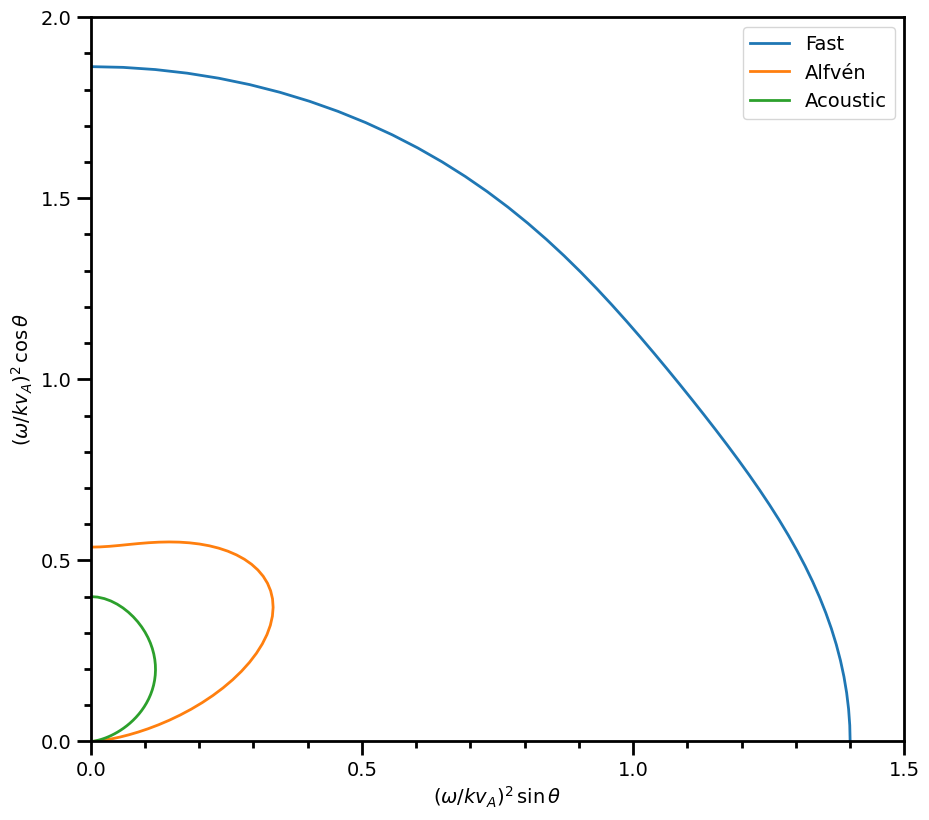I’ll take the opportunity to cross-post this one from the PlasmaPy website; I’m pretty happy about how this went.
PlasmaPy 0.6.0
We’re really happy to announce that we’ve just released PlasmaPy version 0.6.0!
We’d like to thank the wonderful people who have contributed to this release:
- Anthony Vo
- Dhawal Modi *
- Dominik Stańczak
- Drozdov David *
- Erik Everson
- Kevin Montes *
- Nick Murphy
- Peter Heuer
- Ramiz Qudsi
- Tiger Du
Where a * indicates their first contribution to PlasmaPy.
Note also that this release drops Python 3.6 support; we now require Python 3.7, following NumPy’s NEP 29.
The cool new features
Note: these are my (Dominik’s) personal highlights. There’s more, but these make the prettiest plots right now.
Two-fluid dispersion relations

In PR #932 Ramiz Qudsi implemented P. M. Bellan’s 2012 full two-fluid dispersion relation for any electron-ion system. Take a look at the notebook introducing that.
Proton radiography

Peter Heuer designed and implemented a framework for synthetic proton radiography. This is a multi-PR tour de force that simulates particles moving through EM fields and hitting a detector plane, generating histograms such as the above. I’d point you to the notebook on that, but there’s three right now.
Analysis & Diagnostic framework; Langmuir probes

Erik Everson is spearheading work on our analysis & diagnostic framework. As the first example, we’ve got a new and improved set of tools for swept Langmuir analysis.
What’s next?
For this year, we’re planning to have a roughly 3-month cadence for releases. Thus, the next release is anticipated around mid June.
It should contain a refactored particle tracker, support for neoclassical transport coefficient calculations for axisymmetric devices along with our first forays into tools for fusion.
One final note: we’re discussing transitioning to some form of Calendar Versioning. If you have thoughts on that, we’d be happy to hear them! Come join the discussion on our Matrix chatroom.